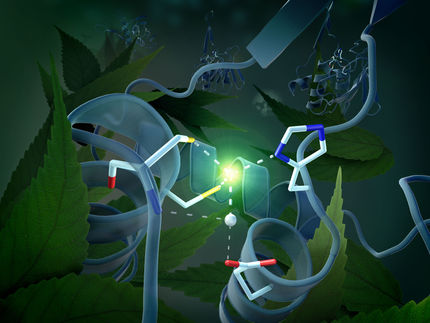Cornell helps develop pest-resistant eggplant, the first genetically modified food crop in South Asia
Advertisement
Cornell researchers and Sathguru Management Consultants of India have successfully led an international consortium through the first phase of developing a pest-resistant eggplant. By about 2009 this eggplant is expected to be the first genetically engineered food crop in South Asia. Farmers have grown genetically altered cotton in India since 2002.
The engineered eggplant expresses a natural insecticide derived from the bacteria Bacillus thuringiensis (Bt), making it resistant to the fruit and shoot borer (FSB), a highly destructive pest. The tiny larvae account for up to 40 percent of eggplant crop losses each year in India, Bangladesh and the Philippines, and other areas of South and Southeast Asia.
The work on the resistant eggplant is part of the Agricultural Biotechnology Support Project (ABSP) II, which is funded by the U.S. Agency for International Development and administered by Cornell in partnership with Sathguru, a firm associated with Cornell's College of Agriculture and Life Sciences (CALS).
Cornell researchers from plant breeding, entomology, molecular biology, applied economics, communication, international programs and the Cornell Center for Technology Enterprise and Commercialization began collaborating on the development of the Bt eggplant in 2002. Another partner, Maharashtra Hybrid Seeds, is on schedule to commercialize the genetically modified fruit by 2009.
All the safety tests for the Bt eggplant have been conducted in India, starting in greenhouses and now moving to large-scale field trials. The eggplant has been found to be nontoxic to fish, chickens, rabbits, goats, rats and cattle as well as nonallergenic. Ongoing tests will examine such questions as whether the plant will continue to resist FSB in the field and for how long; whether the Bt eggplant cross pollinates with other eggplants in the field and how far the Bt plants should be from other eggplant fields; whether nontarget insect populations are affected in the long term; and how yields compare with those of other eggplant varieties.
It is estimated that the Bt eggplant will reduce insecticide use by 30 percent while doubling the yield of marketable fruit (although eggplant is eaten as a vegetable).






















































